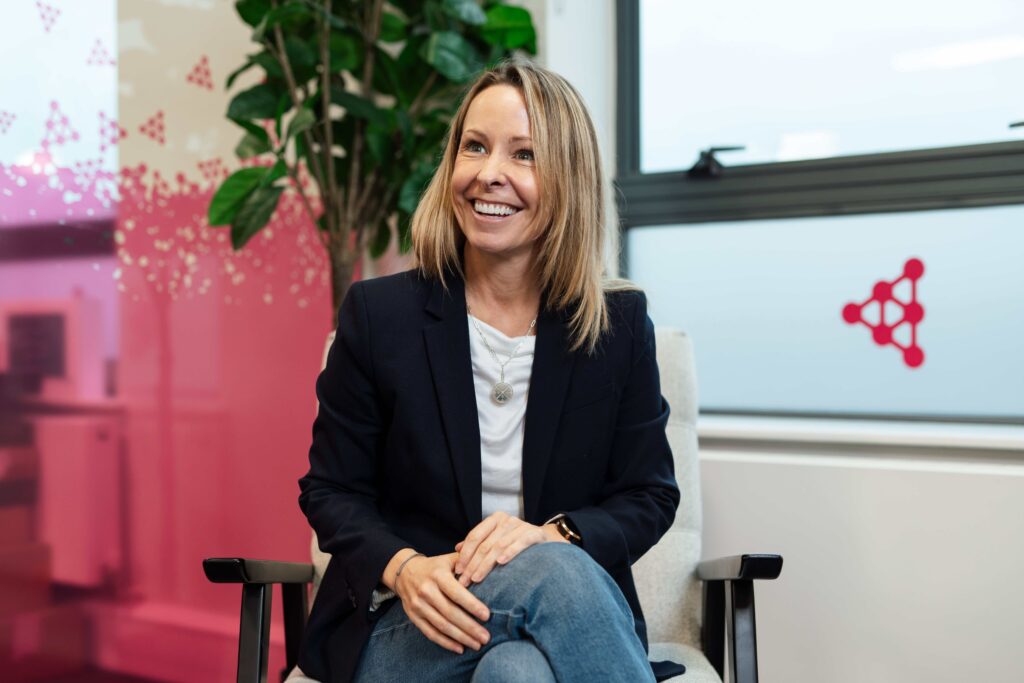In October, Canalys characterised AWS Marketplace as “one of the biggest distributors in EMEA and globally”.
Considering that some $85bn of third-party software spend is set to travel via hyperscaler marketplaces (led by AWS) by 2028, up from $16bn in 2023, arguably the analyst has a point.
But do the distributors that have bossed this world for so long agree?
As our 50 Must-Know UK Distributors feature showed, opinion is divided, with some seeing AWS Marketplace as a peer and others dismissing it as a pale imitation of distribution’s role.
The report ranks the largest UK IT distributors on our radar by approximate size. Find out who made number one here.
In partnership with ResourceiT, we’re also bringing you access to exclusive insights into what resellers and MSPs REALLY want from their distributors in 2025. The research, conducted across 30 UK resellers, reveals several critical insights that will help distributors better align their strategies with reseller needs as they head into 2025 (brief registration process required).
Some of the 50 outfits featured in Must-Know Distributors are pushing on with efforts to develop their own cloud marketplaces, with Arrow and TD Synnex issuing press releases only this month detailing the latest updates to their ArrowSphere and StreamOne platforms, respectively (the former adding augmented generative AI tools, and the latter unveiling “several new powerful, customer-centric capabilities”). Others such as Pax8 and Giacom now define themselves as ‘marketplaces’, not distributors.
But how do they view the biggest cloud marketplace of them all, in the form of AWS Marketplace? While AWS Marketplace is increasingly bringing distributors into its marketplace model (with Westcon, for instance, inking an agreement with the giant earlier this year), its sheer scale, combined with its ability to bypass a two-tier channel, could also make it the biggest threat to their traditional stomping ground since the onset of cloud.
We asked top execs from each of the 50 (or the 44 we made contact with) a range of serious and more playful questions.
This included their views on whether or not AWS Marketplace should be considered a ‘distributor’.
Here’s what some of them said:
Climb Channel Solutions CRO Gerard Brophy

Yes I absolutely agree.
However, despite the size of AWS they still don’t have the channel scale that distribution has, and it’s no surprise that AWS are looking to add distributors to their organisation. In addition, AWS doesn’t have the skill set to advise partners on the up-sell or cross-sell. A partner will just ask for what they think they need whereas it is a distributor’s role to work with that partner to ensure that they maximise the size of the deal by adding certain technologies or certain solutions within that vendor. AWS can’t replace the distributor being the trusted advisor to the reseller.
View Climb Channel Solutions’ profile here (free members only)
Matt Sanderson, SVP & MD UK & Ireland, Ingram Micro

AWS Marketplace is a procurement method, whereas distribution brings together incremental elements. For example, the vendor knowledge and support, bringing technologies together to provide solutions, credit lines, payment terms, etc. AWS themselves have created the DSOR model which brings distribution & partners together to create added value.
View Ingram Micro profile here (free members only)
Brigantia MD Angus Shaw

Yes. To me, although many don’t like it, a marketplace is a distributor – just part of the new world that we find ourselves in. Does a distributor, in time, have to be a marketplace? That is the question… that all comes down to perceived value.
View Brigantia profile here (free members only)
Midwich UK&I MD Mark Lowe

While it’s an impressive model, it’s not distribution as we know it. True specialist distribution thrives on being an extension of both the customer and supplier.
View Midwich profile here (free members only)
Westcon-Comstor Global COO and CFO Callum McGregor

The rise of hyperscaler marketplaces, led by AWS Marketplace, has been one of the defining technology trends of recent years and is certainly becoming one of the largest intermediaries, reshaping end-user buying patterns. The significance for the channel is also underlined by Canalys who are projecting that more than 50% of hyperscaler marketplace sales will come via channel partners by 2027.
At Westcon-Comstor we are clear that the rise of AWS Marketplace represents an opportunity for us and the channel more broadly, hence our agreement with AWS earlier this year and the launch of our innovative, multi-vendor AWS Marketplace programme. In building a bridge that allows our partners to serve their customers directly in AWS Marketplace, we continue to drive their success by enabling them to sell where their customers want to buy.
View Westcon-Comstor profile here (free members only)
Giacom CTO Nathan Marke

We agree. However, let’s be clear: the channel needs its distribution partners to offer more than just a faceless technology proposition. Our focus is on how we can deliver added value to our partners, helping them not just sell the in-vogue technology, but also to build a sustainable valuable business based on quality revenues streams.
View Giacom profile here (free members only)
VIP Computer Centre MD Harpreet Sahni

While I can understand the sentiment, the value offered by the AWS marketplace platform remains different to the value added by a distributor. If you draw comparison to the “distributor-like” service offered by a platform for software distribution, then, yes, you could class AWS Marketplace as one of the world’s largest distributors, though the services offered are limited and only represent a portion of what a distributor would provide.
View VIP Group profile here (free members only)
Mayflex CEO Andrew Percival

Yes, it is clear that these marketplace platforms are offering vendors a low cost, scalable route to market. For the platform owner/operators they can quickly service a wide range of customers across an almost infinite range of products.
View Mayflex profile here (free members only)
Joel Chimoindes, CEO, Nuvias UC

Absolutely. AWS Marketplace offers software solutions along with a host of value-add capabilities that partners can resell, bundled with their own services. This is software distribution and they do it really well.
View Nuvias UC profile here (free members only)
ASM Technologies Sales Director Iain Tomkinson

I don’t view AWS Marketplace as a direct competitor to traditional distribution, despite its impressive growth in third-party software sales.
From my perspective, it’s more an evolution of the market rather than a disruptive force, particularly for specialised distributors like ourselves. While AWS has certainly achieved phenomenal growth, software distribution is incredibly nuanced and complex – it’s not something that can be effectively channelled through a single platform or approach. Not every solution or vendor fits neatly into their model, and many customers need more specialized support and services than a marketplace can provide.
So while they’re certainly a significant player, I see them as part of the market’s natural evolution rather than a replacement for the value that specialised distribution brings to the table.
View ASM Technologies profile here (free members only)
Ignition Technology UK&I Country Manager Dave Risk

Hmmm! The channel is still learning how to embrace Marketplace and understand the relevant areas of value. There are elements of traditional distribution in the model, however it’s different to a value-based offering like we have at Ignition.
View Ignition profile here (free members only)
John Hayes-Warren, Intec Microsystems

I must agree that AWS Marketplace has redefined how we think about software distribution at scale. However, distribution is more than just access; it’s about the depth of service and partnership. While AWS Marketplace offers convenience and volume, it doesn’t replicate the relational and value-driven approach that distributors like us provide.
Our role goes beyond product distribution, we act as strategic enablers for customers. Whether it’s helping the channel navigate complex purchasing decisions or providing in-depth technical support, traditional distributors play a crucial role in driving long-term value for all stakeholders. In a world where technology ecosystems are increasingly interconnected, our ability to consult, customise, and troubleshoot is more important than ever.
View Intec Microsystems profile here (free members only)
Mukesh Gupta, CEO, e92plus

They are becoming a big part of the channel, but not really as distributor – it’s a complex market dynamic, where they might be a short-term tactical challenge but could be a huge partner friend if they embrace the potential of working with a two-tier channel.
View e92plus profile here (free members only)
Distology CEO Hayley Roberts

Yes and no. The level AWS sits at in its crudest form is where a distributor sits but what is needed by the channel in terms of expertise and enablement is a long way from what AWS is doing.
View Distology profile here (free members only)
Target MD Michael Lawrence

The numbers are hard to ignore – AWS is well positioned as one of the world’s largest software distributors.
View Target Components profile here (free members only)
Titan Data Solutions CEO Ben Jackson

I can understand why Canalys have labelled them as a distributor as they are transacting a large amount of software business. However, I believe that where they’re different to distributors such as Titan is when it comes to value-add. The services that we offer resellers allow us to support them and their customers throughout the procurement process. This is what sets Titan apart in the market and why there is very much still a genuine requirement for ‘VADs’.
View Titan Data Solutions profile here (free members only)
Kite Distribution MD Dave Marshall

I think we are all adapting to marketplaces…..the positives I see is that both AWS and Azure are adding distribution to their platforms and recognising the value we bring.
View Kite profile here (free members only)
Provu MD Justin Carl

Yes. AWS have shown the world how to distribute a range of essential and future proof services remotely and brilliantly. We all have a great deal to learn from their model, no matter what our size and scale. Customers are becoming increasingly sophisticated, and we have to move with them or risk getting left behind.
View Provu profile here (free members only)
Selectec Sales Director Ben McKean

While I agree with Canalys’ assessment of AWS Marketplace as a powerful distribution channel, it could be classed as more than just a distributor. It’s a thriving digital marketplace that facilitates the discovery and deployment of a vast array of software solutions.
View Selectec profile here (free members only)
ABC Managing Director Chris Walsh

I am not to argue with Canalys but I think it varies on the tech type you are talking about. I do agree but don’t think if affects our emerging tech vendors at this stage.
View ABC Distribution profile here (free members only)
















